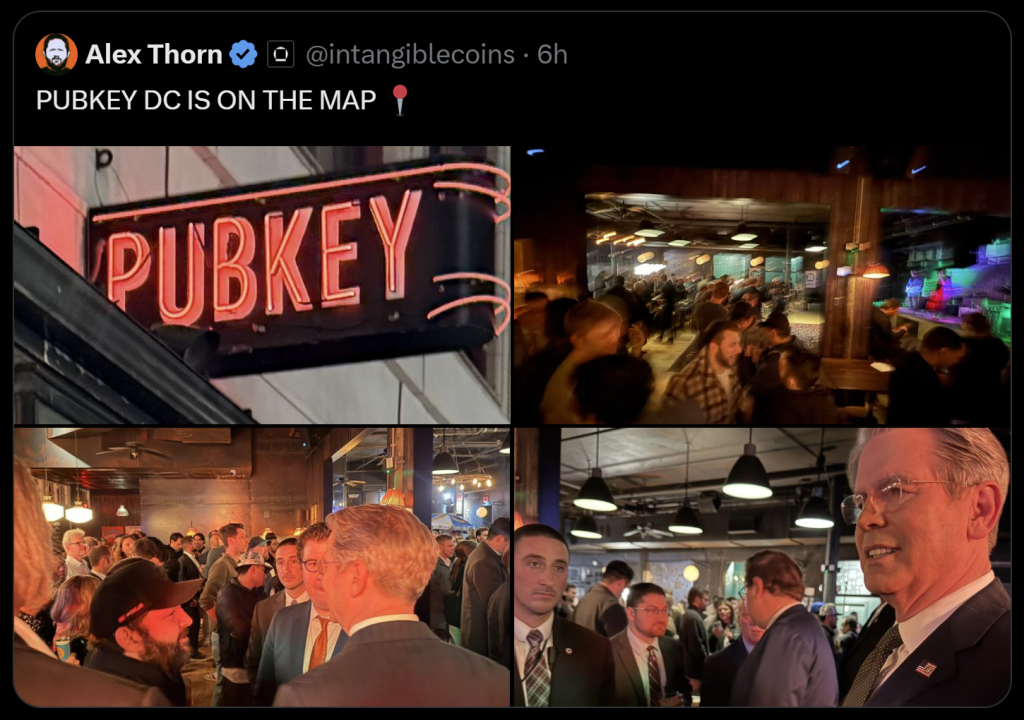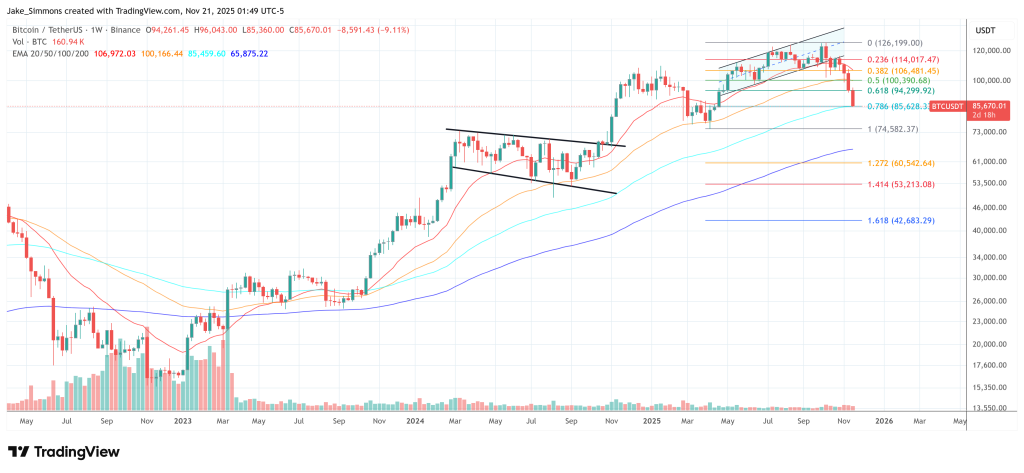Bitcoin Gets A Covert Signal As Bessent Walks Into PubKey DC
PubKey’s Washington, DC opening yesterday would normally be filed under Bitcoin culture: a BTC-centric bar and meetup space planting a flag a few blocks from the institutions that write and enforce US financial policy. Instead, the launch became a market-relevant moment after Galaxy Digital’s head of firmwide research Alex Thorn posted photos from the event that show US Treasury Secretary Scott Bessent in attendance.
Is This The Hidden Bitcoin Bull Signal?
Thorn shared a few photos and only wrote, “PUBKEY DC IS ON THE MAP.” While Bessent has not acknowledged the visit on his own X account, the lack of an official readout keeps the episode informal. But in Washington, informality from senior officials is often where the earliest signals live.

Bitcoin-aligned commentators read the presence as overtly constructive. Analyst MacroScope (@MacroScope17) observed, “The Treasury Secretary was at tonight’s opening of PubKey DC. In this type of market, signals like this don’t matter much. Eventually traders look back and realize it mattered.”
Strive chief investment officer Ben Werkman framed it as a hindsight moment in real time, saying, “Having the Secretary of the Treasury at the Pubkey DC launch seems like a moment I could easily look back on and say ‘wow, it was all so obvious’.” Thorn replied, “agreed this is unabashedly bullish,” while Nakamoto’s vice president of investor relations Steven Lubka wrote, “The Treasury Secretary of the United States is at Pubkey. This is the sign you have been waiting for.”
None of those posts constitute policy, but they reflect a shared interpretation: a sitting Treasury Secretary showing up at a Bitcoin venue in DC is not a neutral optic in a cycle where state posture toward BTC is being repriced globally.
PubKey already carries political symbolism. On September 18, 2024, Donald Trump visited PubKey in New York City, bought cheeseburgers, and paid in BTC, becoming the first US president to transact on-chain in public.
Still No Update On The US Strategic Bitcoin Reserve
Yet the bullish optic lands amid a notable policy vacuum. President Trump’s March 6, 2025 executive order created a US Strategic Bitcoin Reserve, directing agencies to report their digital-asset holdings and transfer forfeited BTC into a reserve that “shall not be sold.”
The same order instructed Treasury and Commerce to develop “budget-neutral” strategies to acquire additional Bitcoin without new taxpayer cost. Those deadlines have passed without a public release of an audit of how much BTC the United States still controls from seizures, what portion is encumbered by restitution or legal claims, or how Treasury intends to operationalize any budget-neutral accumulation path.
Two weeks before the PubKey DC opening, Bessent surprised the community with an unusually direct Bitcoin endorsement on X: “17 years after the white paper, the Bitcoin network is still operational and more resilient than ever. Bitcoin never shuts down. @SenateDems could learn something from that.” The message, posted during a federal shutdown fight, was both partisan jab and institutional compliment, positioning BTC’s uptime as a governance benchmark. The PubKey appearance now extends that rhetorical posture into a physical one.
Put simply, Bessent at PubKey DC is bullish as a social signal, not as a confirmed policy pivot. It suggests that Bitcoin’s legitimacy inside the US fiscal establishment is deepening to the point where the Treasury Secretary can engage with BTC-native spaces without treating them as political risk. But until Treasury releases a full reserve accounting and clarifies whether any lawful budget-neutral acquisition route exists, the Strategic Bitcoin Reserve remains more intent than instrument. Markets can price symbolism quickly; they will ultimately need numbers.
At press time, BTC traded at $85,670

You May Also Like

The Top Crypto to Invest in 2025 Amid ETH & BNB’s Rise

Web3 fantasy sports platform Sorare will lay off 35% of its staff.
